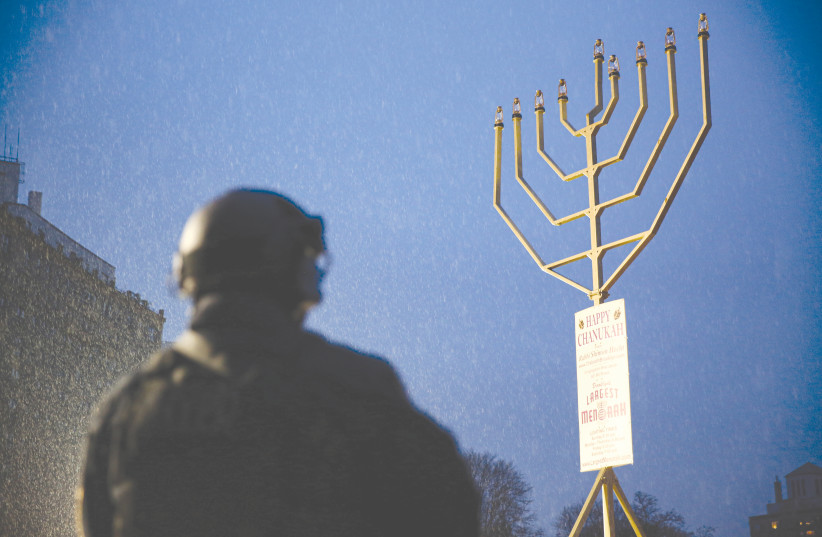
 Osiecka i PRL
Osiecka i PRL
Biograficzny serial o autorce „Małgośki”, „Na całych jeziorach ty” czy „Kochanków z ulicy Kamiennej” napisali i wyreżyserowali mężczyźni. Jak to w TVP. Trzy pierwsze odcinki zapowiadają realistycznie odmalowany portret niezależnie myślącej kobiety i artystki na tle kolejnych epok PRL, który nie cały był koszmarem. Jak nie w TVP.
W tekście o Agnieszki Osieckiej bujnym życiu po życiu, w świątecznej „Polityce”, współscenarzysta 13-odcinkowej „Osieckiej” Maciej Wojtyszko zapowiada serial następująco: – Znałem Agnieszkę, reżyserowałem jeden z odcinków jej „Listów śpiewających”, doskonale pamiętam też tamte czasy. I myślę, że w serialu udało się oddać klimat epoki, prawda o tamtych czasach się sączy, w miarę uczciwie jest to pokazane, choć są pewne skróty, czasem z dwóch postaci tworzymy jedną. A wszystko pisane tak, by nie narazić się na procesy, wszak wielu bohaterów albo ich najbliżsi wciąż żyją.
Reżyser większości odcinków Michał Rosa – Robert Gliński wyreżyserował początek i finał, w trakcie odszedł do realizacji filmu o księdzu Ziei – całość streszcza tak: – Mamy historię o kobiecie, która myśli samodzielnie, jest niezależna, nie mieści się w schemacie i ciągle się w kimś kocha, często traktując mężczyzn jak natchnienie. A równolegle mamy i Cybulskiego, i Kobielę, i Andrzejewskiego, i Hłaskę, i Przyborę z Wasowskim, jest Giedroyć i środowisko paryskiej „Kultury”. Przywołujemy ich dokonania, piosenki, teksty. Polska tamtych czasów.

I z grubsza tak to wygląda na ekranie, przynajmniej w trzech pokazanych już pierwszych odcinkach. Są dostępne na platformie vod TVP (wraz z dokumentami o Osieckiej, nagraniami jej sztuk i piosenek), a TVP1 ma je wyemitować 25, 26 i 27 grudnia. Emisja następnych dziesięciu jest przewidziana na kolejne niedziele. I choć wydarzenia (i mężczyźni) mkną przez ekran w iście ekspresowym tempie, to generalnie nie jest źle. Jest i Polska Ludowa, i dojrzewająca w niej dziewczyna, w której dojrzewa talent. Nie tylko do pisania, ale też obserwacji – do patrzenia i widzenia.
Obraz jej relacji miłosnych z Witoldem Dąbrowskim (Jan Hryniewicz, zdjęcie na dole) i Markiem Hłaską (Jędrzej Hycnar, na zdjęciu otwierającym) przywodzi na myśl filmy z epoki, ze stylowymi, wygadanymi dziewczynami, które nie urządzają scen zazdrości, przełykają porażki, upokorzenie i idą dalej. Trochę bardziej samotne, poobijane, mniej ufne. Osiecka swoje doświadczenia przerabia na wiersze i teksty, jest trochę bohaterką każdej ze swoich piosenek.

Opowieść startuje we wczesnych latach 50., urodzona w 1936 r. Osiecka (Eliza Rycembel) ma 16 lat i jest młodą, rzucającą się w oczy i rzucającą światu wyzwanie kobietą. Czasy stalinizmu oglądamy z innej perspektywy niż ta, do której przyzwyczaiła swoich widzów telewizja narodowa. Nie ma martyrologii, tortur i więzień, jest nauka „języka wroga” (kurs angielskiego), treningi na basenie, domówki i nasiadówki ZMP, publiczna krytyka za nie dość ideowe nastawienie. Pomiędzy, mimochodem, a nie łopatą do głowy, pojawia się konformizm, donosicielstwo i lojalność, za którą czasem trzeba drogo zapłacić.
I obrazek dziś mający – tak jak donosy i ideowość – bardzo współczesny wydźwięk, czyli milicjanci spisujący młodych ludzi za to, że śpiewają piosenki.
W kolejnych odcinkach za Osiecką wpadamy na jej „pierwszy bal”, na spektakle STS i gdańskiego Bim-Bomu, na światowy zjazd młodzieży socjalistycznej, do łódzkiej Filmówki, do SPATiF i do Kazimierza. Są piosenki – w większości w naturalny sposób wkomponowane w akcję. A Eliza Rycembel – tak jak jej bohaterka – ma charyzmę i talent.
W drugiej połowie serialu pałeczkę przejmie Magdalena Popławska, a w perspektywie są – jak to określił Maciej Wojtyszko – kolejne epoki, kolejni mężczyźni i kolejne Agnieszki.
Osiecka, reż. Robert Gliński, Michał Rosa, TVP1 i vod.tvp.pl, 13 odc.
Zawartość publikowanych artykułów i materiałów nie reprezentuje poglądów ani opinii Reunion’68,
ani też webmastera Blogu Reunion’68, chyba ze jest to wyraźnie zaznaczone.
Twoje uwagi, linki, własne artykuły lub wiadomości prześlij na adres:
webmaster@reunion68.com



